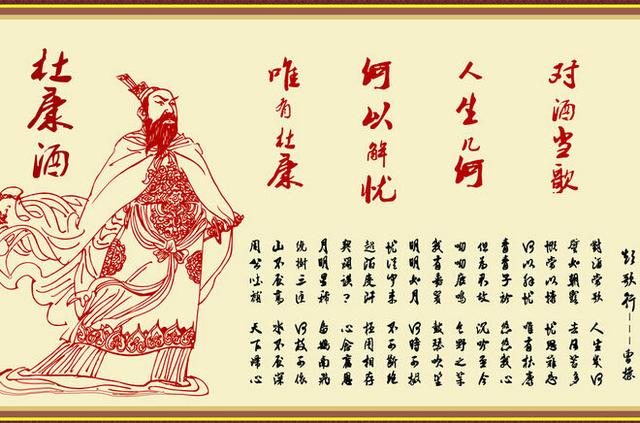Cao Cao in Art
3 min readCao Cao(155-220),zi Mende,was a regional warlord who rose to become the self-appointed Imperial Secretarist under Han Xian Di and the de facto ruler of Northern China during the last years of Eastern Han Dynasty.He laid down foundations for what was to become the Kingdom of Wei under his son Cao Pi.Although generally remembered as a cruel and suspicious character,Cao Cao was also a brilliant ruler,strategist and poet.
Historical interpretation Cao Cao was the son of a court official of the Han Dynasty.He held positions at this court until an attempted coup by general Dong Zhuo brought down the dynasty.Dong Zhuo was not able to consolidate his hold on the empire and China fell into civil war and anarchy.Cao Cao was part of the Alliance against the Dong Zhuo-controlled Han Dynasty.He quickly gained fame by winning several battles against the Han which earned him the name the“Hero of Chaos”(In the resulting chaos Cao Cao emerged as the Cao Cao Unification of the North,winning a critical battle(the Battle of Guandu)at the Huang He(Yellow River).He assumed effective rule of Northern China and assumed the title of Imperial Secretarist.The last Han emperor would remain a figurehead until the abdication in 220.Cao Cao extended his control northward,past the Great Wall of China,into northern Korea,and southward to the Han River.His attempt to extend his dominationsouth of the Yangtze River was dashed as his forces were defeated by the coalitionof Liu Bei(who later founded the Kingdom of Shu in southwestern China)and Sun Quan(who later founded the Kingdom of Wu in southeastern China)at the naval Battle of Red Cliff in 208.

In 213,he was titled Wei Gong(Duke of Wei)and given ten cities as his domain.
This area was named the”State of Wei”.In 216,Cao Cao was promoted to King of Wei.
Cao Cao died some time after the defeat and death of the general Guan Yu of Shu.
Cao Cao’s death was possibly the result of a brain tumor,as he had complained often of painful headaches.A number of his most loyal followers,including his cousin and general Xiahou Dun as well as his bodyguard Xu Chu,died soon after as well,as iffollowing their master into the afterlife.He was posthumously given the title of Wei Wudi(Martial Emperor of Wei).His eldest surviving son Cao Pi inherited his position as Imperial Secretarist and the title Wei Wang(King of Wei).Within one year Cao Pi seized the imperial throne and proclaimed himself to be the first Emperor of the Wei Dynasty-usually referred as the Kingdom of Wei.
Cao Cao in Art
While the historical record indicates Cao Cao was a brilliant ruler and poet,in classical Chinese literature he is traditionally represented as a cunning and deceitful general.Cao Cao is also a character in the Chinese classic Romance of the Three Kingdoms,where he is cast as the cunning and capable villain,as he is in Chinese opera,where his character’s white makeup is meant to reflect his wicked heart.This is likely due to a subsequent Confucianist interpretation of events which would have attributed his failure to unify China to flaws in his character.
Quotation
“I would rather betray the world,than let the world betray me”-Cao Cao,Romance of the Three Kingdoms.








